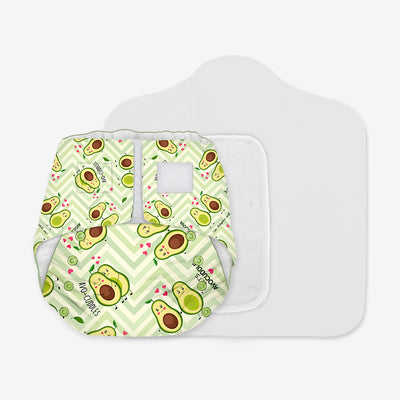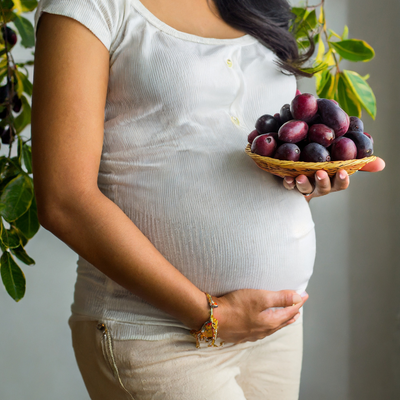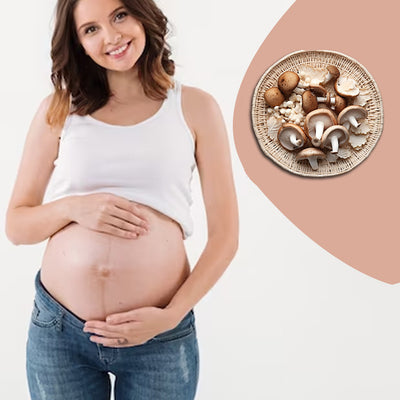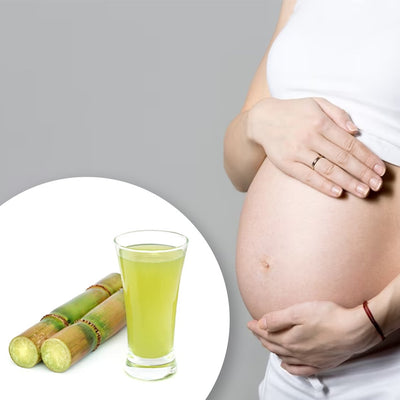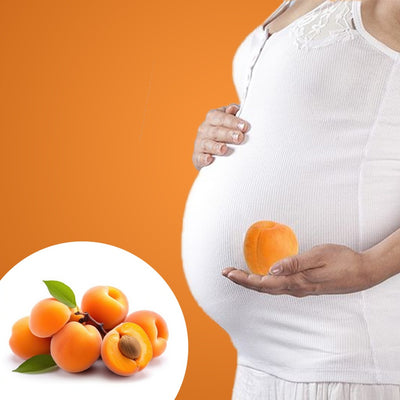Eating Sunflower Seeds During Pregnancy- Is It Safe?

Eating Sunflower Seeds During Pregnancy
During the beautiful journey of pregnancy, maintaining a well-balanced and nutritious diet is critical for both the mother's health and the unborn child's optimal development. Sunflower seeds stand out as a delicious and nutritious snack option. These seeds, derived from the sunflower plant, have become a global favorite, valued not only for their flavor but also for their nutritional value. This blog will delve into the importance of incorporating sunflower seeds into the diet during pregnancy. As we explore this topic, we will address common questions that expectant mothers may have, such as the benefits of sunflower seeds during pregnancy and any potential concerns.
Are Sunflower Seeds Safe during Pregnancy?
Absolutely, eating sunflower seeds during pregnancy is not only safe but also extremely beneficial to both the mother and the developing baby. Sunflower seeds, which are high in essential nutrients like folic acid, vitamin E, and omega-3 fatty acids, help pregnant women's overall health. These nutrients are essential for the proper development of the baby's neural tube, brain, and overall growth. With their crunchy texture and delicious flavor, sunflower seeds are an easy and enjoyable way for pregnant women to increase their nutritional intake. Enjoy the benefits of sunflower seeds as a safe and nutritious addition to your pregnancy diet
The Vitamins and Minerals of Sunflower Seeds
Rich in Healthy Fats:
Sunflower seeds are rich in healthy fats, particularly polyunsaturated and monounsaturated fats. These fats promote heart health and aid in the absorption of fat-soluble vitamins.
Abundant in Vitamin E:
A powerhouse of vitamin E, sunflower seeds serve as an antioxidant reservoir. This vitamin is crucial for protecting cells from oxidative stress and supporting skin health.
Packed with Protein:
For those looking to boost their protein intake, sunflower seeds are an excellent choice. Protein is essential for tissue repair, muscle development, and overall growth.
Loaded with Magnesium:
Sunflower seeds are a magnesium-rich snack. This mineral is necessary for a variety of bodily functions, including muscle and nerve function, blood sugar regulation, and bone health.
Source of Selenium:
Selenium, a trace element found in sunflower seeds, aids in antioxidant enzyme function, boosting the immune system and protecting against oxidative damage.
Folic Acid Content:
Sunflower seeds contain folic acid, which is essential for pregnant women because it promotes neural tube development and lowers the risk of certain birth defects.
Fiber for Digestive Health:
Sunflower seeds increase your fiber intake, which aids digestion and promotes gut health.
Essential Minerals – Iron and Zinc:
Sunflower seeds contain iron, which is important for preventing iron deficiency anemia, as well as zinc, which helps with immune function and wound healing.
Health Benefits of Sunflower Seeds During Pregnancy
Optimal Fetal Development:
Sunflower seeds enriched with folic acid aid in the formation of the baby's neural tube, which is critical for early fetal development and reduces the risk of neural tube defects.
Heart Health for Mother:
Sunflower seeds contain healthy fats that promote cardiovascular health, help to maintain healthy cholesterol levels, and support the heart during pregnancy.
Combatting Inflammation:
Sunflower seeds are high in antioxidants, which help combat inflammation and promote a healthy environment for both mother and baby.
Regulating Blood Pressure:
Sunflower seeds contain magnesium, which aids in blood pressure regulation and contributes to the expectant mother's cardiovascular system stability.
Boosting Immune Function:
Sunflower seeds contain selenium, which boosts immune function, protects against infections, and promotes overall maternal health.
Energy Boost:
Sunflower seeds, which are high in protein and healthy fats, provide a natural and sustained energy boost to pregnant women, allowing them to combat fatigue and stay active.
Preventing Anemia:
Sunflower seeds contain iron, which helps to prevent iron deficiency anemia during pregnancy and ensures adequate oxygen supply for both mother and baby.
Digestive Wellness:
Sunflower seeds, which are high in fiber, help to improve digestive health by alleviating common pregnancy-related digestive issues and encouraging regular bowel movements.
Incorporating sunflower seeds into a pregnancy diet brings forth a multitude of health benefits, supporting both the mother's well-being and the optimal development of the baby.
Risks of Eating Sunflower Seeds During Pregnancy
While sunflower seeds have numerous benefits, it is important to be aware of potential risks during pregnancy.
Allergic Reactions:
Some people may be allergic to sunflower seeds, resulting in adverse reactions. Pregnant women must keep an eye out for any signs of allergies or discomfort.
Caloric Intake Concerns:
Sunflower seeds are calorie dense. Excessive consumption may contribute to an increase in calorie intake, potentially resulting in unwanted weight gain during pregnancy.
Phosphorus Imbalance:
Sunflower seeds are rich in phosphorus. While this mineral is essential, an imbalance may impair calcium absorption, compromising bone health.
Potential for Seed Contamination:
Improperly stored or contaminated seeds may cause foodborne illness. Pregnant women should make sure the seeds are from a reputable source and stored properly.
Fiber-Related Discomfort:
While fiber is beneficial, an abrupt increase in intake may result in digestive discomfort. Pregnant women should limit their sunflower seed consumption to avoid gastrointestinal problems.
Interference with Medications:
Sunflower seeds contain compounds that may interact with certain medications. Pregnant women taking medication should consult with their doctor about seed consumption.
FAQ
1. Can I eat sunflower seeds throughout my entire pregnancy?
Answer: Yes, you can include sunflower seeds in your diet during pregnancy. They offer valuable nutrients. However, moderation is key, and it's essential to be mindful of any allergies or discomfort.
2. Are there any risks of allergies to sunflower seeds during pregnancy?
Answer: Yes, some individuals may be allergic to sunflower seeds. Watch for signs of allergic reactions, and if you notice any, consult your healthcare provider.
3. How can sunflower seeds benefit my baby's development during pregnancy?
Answer: Sunflower seeds provide essential nutrients like folic acid, promoting optimal neural tube development and overall growth of the baby.
4. Can sunflower seeds contribute to excessive weight gain during pregnancy?
Answer: While nutrient-dense, sunflower seeds are calorie-rich. Enjoy them in moderation to avoid excessive calorie intake and unwanted weight gain.
5. Are there any precautions regarding seed contamination during pregnancy?
Answer: To minimize the risk of foodborne illnesses, ensure you purchase sunflower seeds from a reputable source, and store them properly in a cool, dry place.
6. Should pregnant women be concerned about phosphorus imbalance from sunflower seeds?
Answer: While phosphorus is essential, excessive intake may impact calcium absorption. Enjoy sunflower seeds in moderation as part of a balanced diet for optimal mineral balance.





